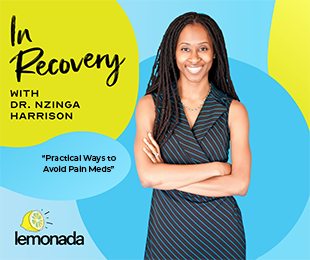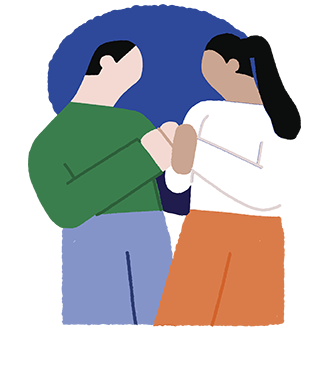Intrusive thoughts happen to everyone now and then. A song stuck in your head, an inner voice challenging your self esteem, and cravings are all common intrusive thoughts. However, those who are going through recovery often struggle with stronger and more frequent intrusive thoughts that can put their recovery in jeopardy.
@eleanor_health Do you struggle with intrusive thoughts? ?? Here is what you can do about it. #empoweryourmind #mentalhealthmatters #therapistsontiktok
♬ original sound – Eleanor Health
Addiction affects over 46 million people in the United States. Going through recovery often means carefully choosing your actions in spite of what your mind and body may be urging you to do. Anyone in recovery can benefit from being aware of intrusive thoughts and developing methods to cope with these thought intrusions when they occur.
Intrusive thoughts are thoughts that appear in your mind against your will and can sometimes repeat over and over. They can be manifestations of inner urges, insecurity, and anxiety.
Some people have intrusive thoughts about their worries, wondering obsessively if they left the front door unlocked or the oven on. Others have intrusive thoughts that tear down their self-esteem, telling them they will never be good enough or that their friends secretly don’t like them. Additionally, many people have intrusive thoughts about cravings, either for foods or addictive substances that are bad for the body but obsessively desired. Even a repeating song can be an intrusive thought. The signature of an intrusive thought is that it appears when you don’t want it to and won’t go away, even if you – the real you – disagree with the thought and don’t want to think it.
People in addiction recovery are more likely to experience intrusive thoughts for two reasons. First, intrusive thoughts are often linked to conditions that can lead to addiction like anxiety, trauma, or an existing obsessive condition. Second, the body’s habitualized craving for an addictive substance will send signals to the brain even when you are committed to recovery.
The problem is that intrusive thoughts can become an internal risk to your recovery. Resisting them can wear at your willpower, affect your ability to respond to triggers and can even become a trigger itself.
Cravings are the most common type of intrusive thought in addiction recovery. It can start as a longing, a memory, or a physical urge. Cravings are challenging to deal with because the thought “I want X” repeats over and over again.
Cravings can start spontaneously, but they are often triggered by reminders. Situations, places, and even emotions that you once associated with addictive behaviors can become triggers in which your body, which became habituated to the drug, will cause an intrusive thought to begin. To note, cravings often dissipate after a few minutes, but it can be difficult to remember that when you’re experiencing one.
Many people who struggle with addiction have intrusive thoughts that are negative about themselves and lead to self-doubt. These problems often existed before the addiction developed and are only made worse by coming off the substance. Those most susceptible to negative self-talk include people with a history of traumatic experiences and people who are struggling with unstable mental health disorders.
Additionally, many can experience post-acute withdrawal syndrome, or an extended period of withdrawal symptoms that can last months, which includes symptoms of depression and anxiety which can worsen negative self-talk.
Addiction can be the cause of many actions that you may be ashamed about later on. It has been proven that lying, theft, and poor self-control are symptoms of addiction itself, no matter what you may have been addicted to. It is okay to feel negative about these previous actions, as this can inspire you to strive to be a good person in recovery.
But these feelings can also become intrusive thoughts that make you feel unworthy of recovery or even self-destructive. It’s important to manage your guilt, shame, and the stigma of addiction that comes from both inside and outside your mind so you can achieve recovery.
Intrusive thoughts happen for almost everyone who is in recovery. You are not alone, and there are many methods to help you move past these moments when your brain continues to bombard you with unwanted thoughts.
Get to know yourself by journaling about the intrusive thoughts. Identify when the thoughts arrive and how you feel about them.
There are two benefits to journaling. The first is that expressing yourself in writing can help to separate your true feelings and thoughts – who you are and what you want to be thinking – from the intrusive thoughts.
The second is the ability to track patterns and triggers for when the intrusive thoughts occur. You might notice that they always happen at a certain time of day, around a certain location, or even when you hear a certain song. Journaling can help you identify these triggers and help you change your routine so you can avoid them in the future.
For some people, meditation and the practice of mindfulness can help with gaining more control over ignoring intrusive thoughts. Mindfulness meditation is about focusing on “the now”, how you feel, what your body feels like, and the sounds and sights around you in the moment. Over time, practicing meditation or mindfulness exercises can help you learn to take yourself away from your thoughts and outlast cravings. One mindfulness technique in particular that helps with managing cravings is called “urge surfing” and it helps you become more mindful of the urge in the moment and move through it easier. For more information, here is an overview of how to practice urge surfing.
Cognitive Behavioral Therapy (CBT for short) focuses on understanding how your thoughts influence your behaviors. It is a popular method in addiction recovery treatment that can help you identify unhelpful thinking patterns and build new behaviors through understanding and shaping your own thought process.
It is important to have a strong support network, including not only friends and family, but also others in recovery and professional support. Support groups can be beneficial because they bring together people working on the same recovery goals to support each other and provide a system to best maneuver through strong intrusive thoughts. Additionally, having professional assistance can reduce the severity of intrusive thoughts and build healthy coping skills for when they arise. Don’t be afraid to reach out to communities and specialists who understand addiction and can help you get through the known stages and symptoms of recovery – including intrusive thoughts.
Addiction recovery looks different for everyone, but intrusive thoughts are often a challenge that most people in recovery share. Reaching out to others for support is often the best way to get out of your own head and reduce the influence that intrusive thoughts can have. The professionals and recovery communities of Eleanor Health are here to help. Contact us today to get in touch with addiction recovery services online or near you.
 Practical Ways to Avoid Pain Meds [Podcast]
Practical Ways to Avoid Pain Meds [Podcast]
 E-book: How to Help a Loved One Struggling with Substance Use Disorder
E-book: How to Help a Loved One Struggling with Substance Use Disorder
 Therapy for Anxiety, Depression, Trauma: 3 Common Types
Therapy for Anxiety, Depression, Trauma: 3 Common Types